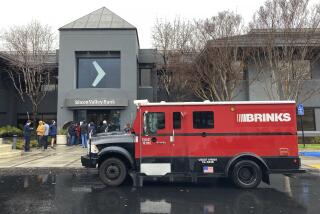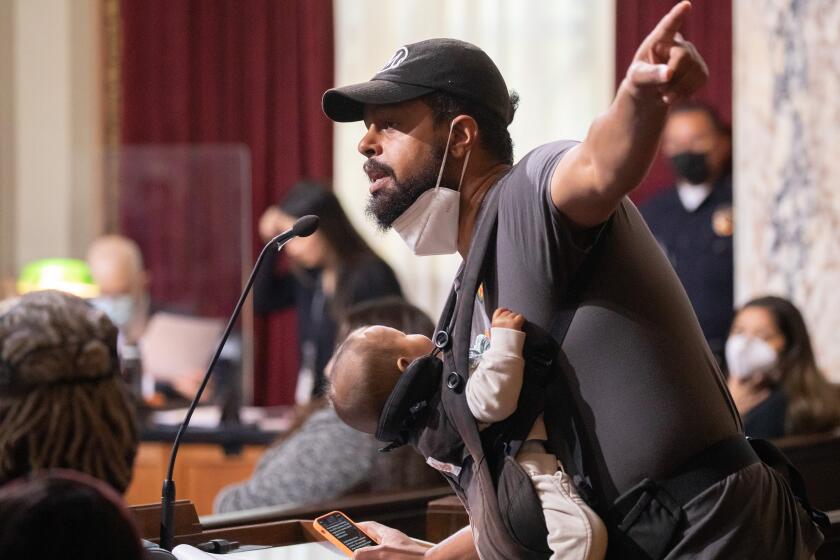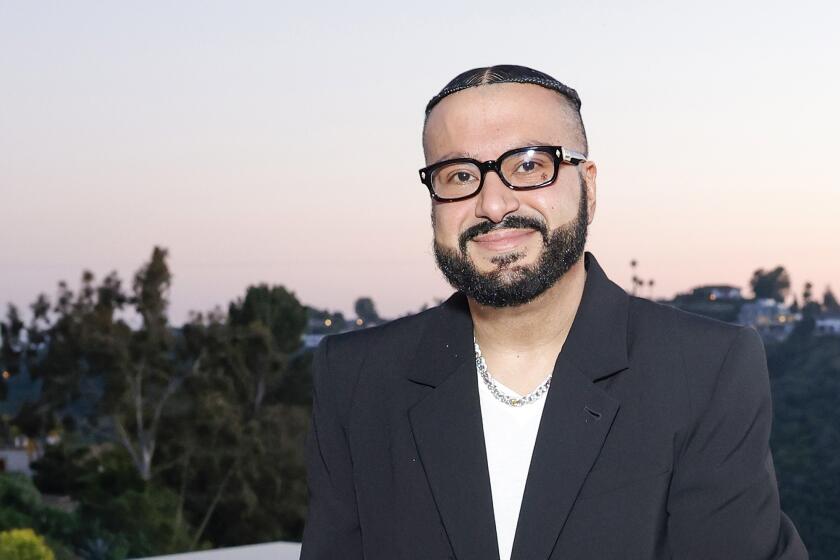$50-million collection basket
Pope Benedict XVI’s visit to the United States has provided the requisite quota of breathlessly televised pageantry. But the most dramatic moment in his brief visit surely was his meeting with three Catholics who, as children, suffered sexual abuse at the hands of priests.
Benedict called for the church to do more for the thousands who endured similar outrages. Los Angeles’ Cardinal Roger M. Mahony echoed that sentiment following the meeting. “We’ve got to face it [the abuse crisis] head on and deal with it,” he told The Times. The pope, he said, “asked us to set a better tone in the church.”
Back in Los Angeles, where the archdiocese reached a record $660-million settlement with hundreds of abuse victims last summer, Mahony is already engaged in an unprecedented exercise that sheds light on what that new tone may entail.
Combined with an earlier payout, the 2007 settlement brought the archdiocese’s total liability to $720 million. When Mahony announced the agreement, he pledged that it would not involve the sale of any parish or school properties, as has occurred in other dioceses. Most local Catholics took that as an assurance that their parishes wouldn’t be asked to pay for pedophiles.
In the months since, however, the cardinal and his lay financial advisors have decided that the archdiocese -- which already has drastically cut staff, sold real estate and liquidated investments -- must seek help from at least some of its parishes if it is to repay a bank loan of about $50 million that was taken out to cover part of the settlement.
There are 288 parishes in the archdiocese, and their money is held in a common investment pool -- currently $600 million -- managed by the archdiocese. Many older, more affluent parishes have what amount to endowments built up over many years. In February, Mahony wrote to the pastors of 101 parishes, telling them that because they are part of “a group of parishes with cash investments of $1 million or more
On Friday, archdiocese spokesman Todd Tamberg told The Times that “the funding of the settlement of the civil cases, which did not include any parish or parish school assets, required a substantial amount of borrowing by the archdiocese’s administrative office. Increasing the revenues of the archdiocese administrative office and decreasing the amount of settlement debt through voluntary parish loans and grants” will allow the diocese to go on providing essential services.
The $50-million loan that must be repaid is held by Allied Irish Bank, and the archdiocese was forced to put up six Catholic high school facilities as collateral -- Daniel Murphy (slated to close this June), St. Bernard, Bishop Montgomery, Bishop Amat, Damien, Bishop Conaty-Loretto and St. Bonaventure. Whatever the 101 parishes decide, Tamberg said, “the archdiocese has no intention whatsoever of selling any of these high schools.” There is no reason to doubt the sincerity of the archdiocese on this question. But making collateral of schools demonstrates just how deeply into the fabric of diocesan life the abuse crisis has reached.
So does Mahony’s extraordinary personal appeal to the parishes for voluntary contributions. Over the past weeks, he has personally appeared at 20 regional meetings to apologize for his own role in the crisis, to urge further understanding of the victims’ injury and to appeal for financial help. Most pastors have submitted the request to their lay parish and financial councils. Many plan meetings before the end-of-May deadline the cardinal set for a response.
Mahony’s efforts are playing out against an extraordinary backdrop. What’s come to be called “the abuse crisis” involved a tiny fraction of American priests, but the majority of the country’s bishops were either negligent or overtly malfeasant in the way they dealt with the crimes.
In an article published Friday in the Tablet, an influential British Catholic newspaper, the American commentator George Weigel pointed out that Catholics have “rallied to the support of the good priests they knew -- who were, after all, 97% (at least) of the American presbyterate -- and one senses no lingering anger at priests. There is, however, residual anger at bishops who failed to act, who protected abusive clergy, who have put their diocese under financial pressure and who have not been called to account.”
In his attempt to persuade Los Angeles Catholics to dip into their parish reserves to compensate victims who suffered abuse under three cardinals, Mahony has chosen to rely on moral authority rather than his power as a prince of the church. It’s an important test of his own relationship with the people in the pews -- a plebiscite of sorts on whether L.A.’s Catholics believe their church and its cardinal really have learned from this wrenching tragedy.
--
More to Read
Start your day right
Sign up for Essential California for news, features and recommendations from the L.A. Times and beyond in your inbox six days a week.
You may occasionally receive promotional content from the Los Angeles Times.






